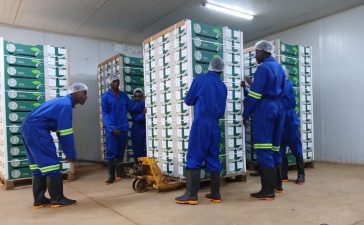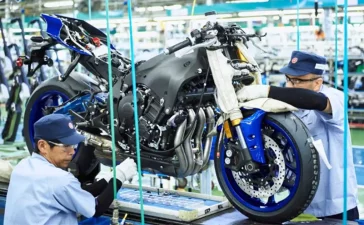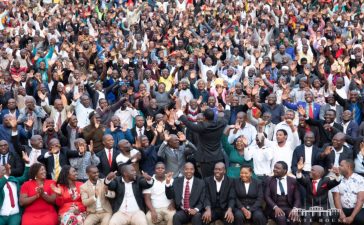Welcome to Shire Times Pulpit of Democracy. Our word today comes from the Book of KHATO CIVILS Chapter of Salima/Lilongwe Water Project as read with Genesis 25:29-34 of the Holy Bible.
One day Esau came in from hunting. He was very hungry, and he smelled something good. Jacob was cooking something good. It might have been a lentil stew. Esau stood before his brother and exclaimed, “I’m starving!” Then he demanded, “Let me have some of that.” Jacob replied, “Are you really so hungry? Hungry enough to trade me your rights as the firstborn son?” Esau answered, “I am about to die of hunger! What good will my rights do me then?” So, Jacob gave him some bread and some of the food. Esau ate and drank, then got up and left. He did not care about his rights as the firstborn son. All he cared about was how he felt at the moment. And because of that, he gave up something that would have been a blessing for the rest of his life [see Genesis 25 from verse 29 to 34]
Now, perhaps, you are asking yourself: How does this Bible story reflect the Salima/Lilongwe water project? Good question! Perhaps before we service your inquisitive mind, let us run a brief background preview:
Malawi has an ambitious water project, but the sad thing is that this project is stuck in its pipeline. This particular project, which seeks to solve present and future water problems in the country’s capital city, is to be executed by an indigenous contractor called Khato Civils.
Water resource plays a critical role in any country’s economy including that of Malawi. The scale of economic activities taking place in our capital city in both domestic and industrial application stresses a point that we can’t do without reliable supply of water. There is a human population boom in Malawi. Our population is, according to reports, expected to double to over 24 million by 2025. Lilongwe alone is reported to be growing at a rate of 5.5% per year and this is the fastest not only in the country, but throughout the African region. This rapid growth is expected to yield a population of over 2.6 million by 2025, which is double the current population projected at 1.3 million.
When we look at the domestic use of the water resource in Lilongwe, there is a supply need of 135,000 cubic meters per day. However, the Lilongwe Water Board is currently affording a supply of 69,000 cubic meters per day. This shows that there is an existing deficit which creates water supply problems to vulnerable consumers. The Kamuzu Dams 1 and 2 in Malingunde and Nsinja respectively, along the Lilongwe River are currently the only source of water that LWB relies to supply the capital city. The river itself is highly variable and very vulnerable during dry seasons. The expected exponential increase in human population, therefore, coupled with the undulating water resource due to hydrological variability of the source river, the capital city is poised to be a frontline casualty of the pending water crisis and, by extension, the economy further falling victim.
In her, birth-right endeavor to avert the estimated crisis, Malawi engaged, through tender process, engineering and construction firms to engineer and execute a solution. Khato Civils, a reputable high-profile company owned by a Malawian based in South Africa, emerged winner and got engaged for the project. However, the IMF and World Bank are saying no to this project, hence the project is stuck in its tracks. Now, let us, with the aid of an imagery, examine the situation a little deeper:
We make use of the Bible verse above: The Bible records a story of a man called Isaac who is said to have been happily married to Rebekah for many years. Rebekah loved to remember the day she had met the stranger at the well. She had offered to water his camels—and her life had changed forever with that gesture. Isaac praised the Lord for bringing her to him from so far away. Yes, according to the records in the Bible, Isaac and Rebekah loved each other very much.
But something was missing in their lives; Rebekah was not able to have children. Oops! Naturally, this state of affairs made her very sad. I mean who wouldn’t be? But the gentleman – Isaac – knew about God’s promise to Abraham, his father. God had told Abraham that his family would become a mighty nation. Isaac spent a great deal of time wondering how that could be. How could a mighty nation come from Abraham’s family?
Isaac didn’t have any children. It was a sad puzzle, one that Isaac longed to solve. Finally, Isaac pleaded with God. He begged God to give Rebekah a child. And God answered Isaac’s prayer—in a surprising way: Rebekah had not one child, but two! God gave Isaac and Rebekah twin boys!
Even the twins were born, they struggled together inside their mother. Rebekah thought this was strange. No one could explain why this was happening. Her husband couldn’t. Her nurse couldn’t. Neither could anyone else she asked.
So, Rebekah talked to God. She prayed and asked God what was happening. God answered Rebekah’s prayer. He told her that the two children inside her were very different. They would be the beginnings of two different nations, two nations that wouldn’t like each other very much. One twin would be stronger than his brother. And the elder would serve the younger [read this sentence again and keep it at the back of your mind].
Isaac and Rebekah named their twins Esau and Jacob. And just as the Lord had said, the boys were very different. Esau, the older, liked to travel away from home. When he wanted something, he wanted it right now. He liked hunting and he was bringing kills from his hunting errands. And he was his father’s favorite twin.
Jacob, on the other hand, liked to stay close to home. He learned how to take care of his father’s flocks and herds. He spent a lot of time with his mother. He learned to cook. And Jacob was his mother’s favorite twin.
Now, let us briefly re-direct our minds to the verse for its centrality on the issue that we want to appreciate here: Esau (he who we are told was the hunter) got home where his brother Jacob was cooking stew (most likely the meat which was previously brought by Esau from his hunting errands) and asked for the stew to handle his stomach deficit at the moment. Now, Jacob was only skilled at processing and turning the hunted animals into delicious meals.
It appears that the fact that the raw materials for that meal were hunted by Esau did not count. Jacob, the cook, assumed full rights of control and perhaps ownership of the meal. Now, Esau was rendered desperate and uncontrollable craving for the meal by the deficit in his stomach. Resultantly, he exchanged his first-borne-birth right with the bowl of stew. In this first-born birth right, the Bible records, there were the right to inherit the wealth of the family as well as the spiritual right to receive special favours from God.
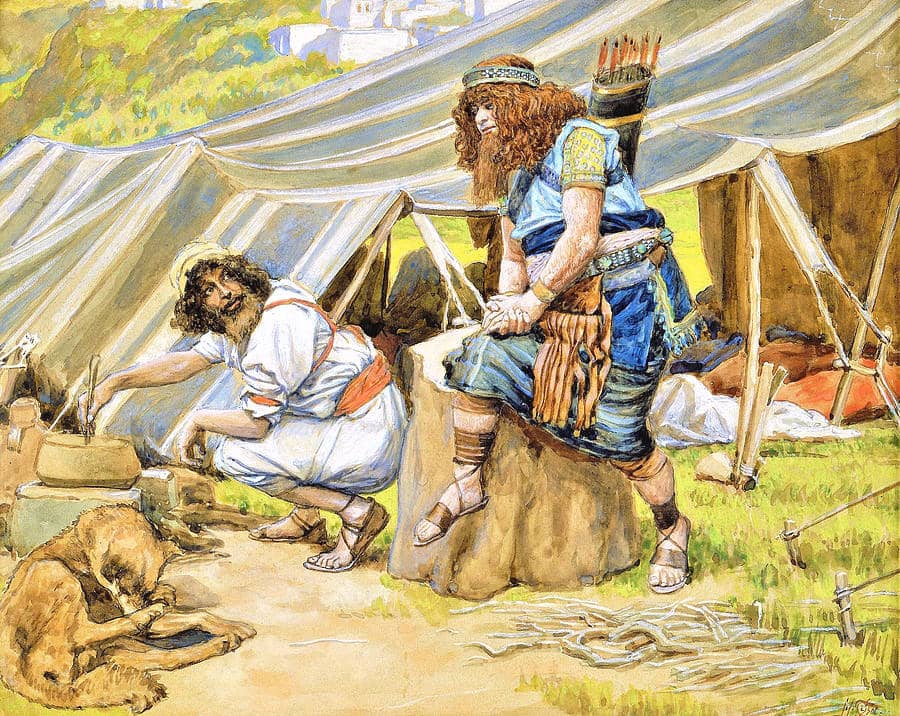
In this world, there are what may be referred to as Jacob Nations and Esau Nations. Remember the promise of God that nations shall emerge from Abraham? The Jacob Nations came together, pooled their resources (money) together and created a bowl of stew (the International Monetary Fund – IMF and the World Bank). When Esau Nations (the poor countries such as Malawi) are in a deficit, they run to the custodians of the bowl of stew to beg or borrow. This is despite the immutable fact that the very minerals and other natural resources that create the wealth of the Jacob Nations come from the poor African nations. But just like Esau, the poor nations barely know how to effectively turn these resources into palatable wealth.
When these poor nations approach the IMF or the World Bank, they don’t get the financial aid for free. They exchange it with their birth right. The IMF and World Bank set the economic agenda that arguably seeks to maintain the poor nations to the datum of poverty so that they are perpetually controlled and exploited. When a poor nation tries to protect its culture from foreign contaminations of homosexuality, for example, the IMF and World Bank raise an objection and the poor nation shuts up and listen. Birthright sold! When a poor country like Zimbabwe decides to expropriate its land from foreign white occupiers and re-distribute it to indigenous people, for example, the IMF and World Bank impose sanctions that crucify the welfare of Zimbabweans. Birthright of possessing their land sold! When Mozambique discovers natural gas in Cabo Delgardo, the bearers of bowl of stew emerge with assorted tactics including war. Birthright to enjoy own natural resources sold!
Economics a little bit: Deficit is a word that is commonplace in economics. In an economy of a country, a deficit is created when money flowing into the country is little than the money flowing out of the country. On one hand, money flows into a country through exporting goods and services to outside markets. On the other hand, money flows out of the country when importing goods and services from outside countries/markets.
In the case of Malawi, which is a likewise case with the rest of poor countries, there is more of import value than export value. Just like Esau, we are mostly unable to process the very raw materials which we have. Jacob takes these raw materials from us, processes them and sells them back to us. We create our deficit by taking more of our money and buy Mercedes Benz from Germany, designer clothes from Italy, technology products from China, medical drugs and products from USA, etc, yet most of these products are, wholly or in part, originating from raw materials that were taken from Africa. An incarnate of Jacob and Esau trade fate.
Malawi, as a Jacob Nation, is trapped into this scenario. Her birth right to decide which water project to implement is challenged by the World Bank and IMF because of bowl of stew. Despite all the brilliance in the Salima/Lilongwe water project, despite all its relevance, despite all its demonstrable sustainability, the World Bank and IMF are strongly against it. Allow us to tell you why.
The IMF and World Bank appear to understand what is said in proverbs 22 verse 7 which says the rich rule over the poor and the borrower is a slave to the lender. The law of nature renders a slave to remain with no other choice than doing that which the master dictates. The priority of IMF and World Bank, therefore, is to sustain the status of poor countries so they continue lording over them.
Now, the Salima/Lilongwe water project which Khato Civils designed was not meant to be financed by the World Bank or the IMF. An alternative financing mechanism is opted. The project is expected to be funded by public sector financing whereby an alternative private money lender is identified and willing to finance the project and expected to recover it from what consumers of the water will be paying over a period of time. By providing public financing for the infrastructure, the project will strengthen LWB’s position to achieve financial sustainability within affordable tariff bands for its water services.
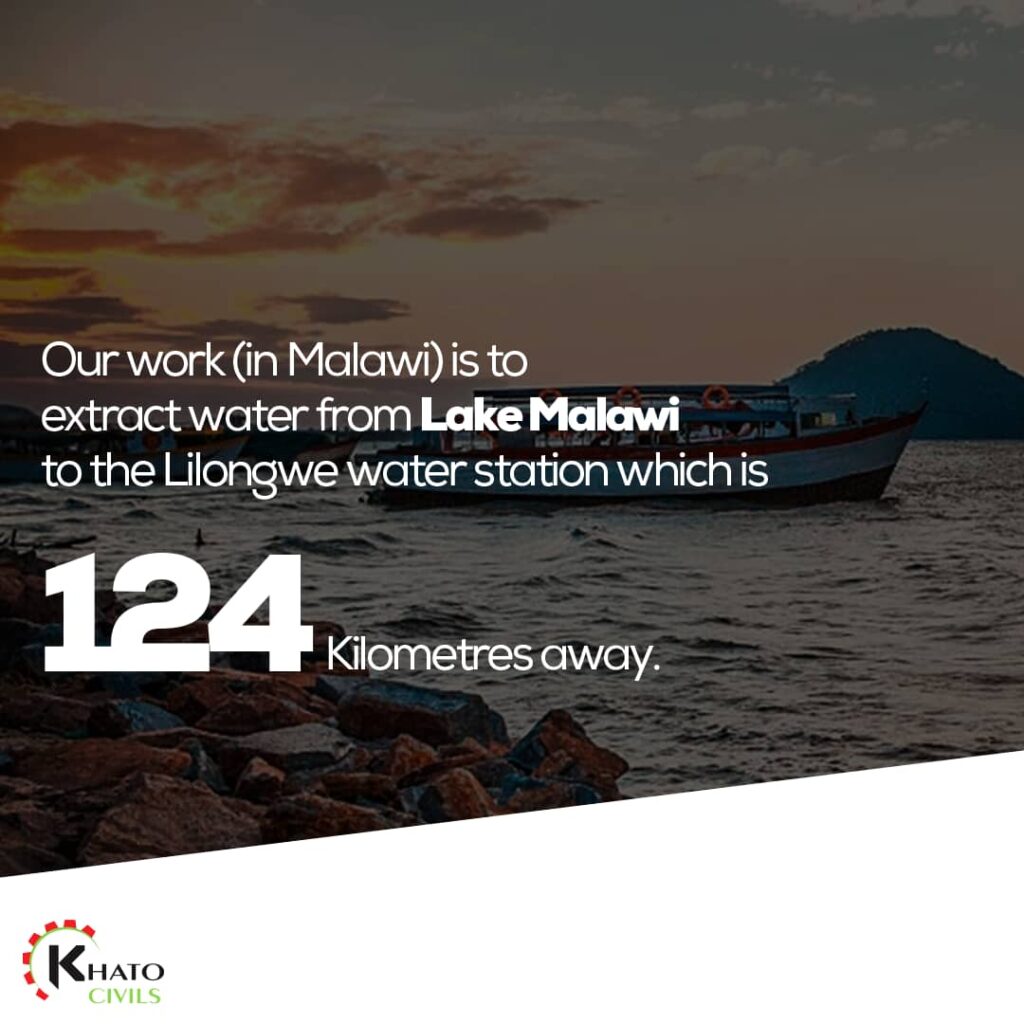
“How dare you abandon us and go for another lender?” The IMF and World Bank question. “If you proceed with that project (or rather that loan transaction with that lender), never come to us to beg from our bowl of stew again. You are on your own!” Malawi trembles and freezes at the same time, while affording to complain about her water crisis and need to solve the same. “Wait a minute,” the World Bank says, “we will give you Diamphwe Multipurpose Dam project”.
But fellow countrymen, this Diamphwe Multipurpose Dam project, which is earmarked to be done along Diamphwe River is a nonstarter because when the World Bank funded a feasibility study of this project, and this study which was completed in 2015, the following challenges came forth:
- The cost of associated resettlement action plan, pegged at US$25 million, would be enormous to Malawi Government given the fact that the resettlement action plan is an exclusive responsibility of the Malawi Government.
- When the World Bank offered to assist Government in meeting the resettlement costs, it eventually withdrew the offer after discovering that the risk of failure of the project was very high.
- An Environmental and Social Impact Assessment (ESIA) conducted by an independent consultant reported a huge risk on the catchment. Additionally, JICA study of 2018 reported that Dzalanyama, a common catchment for Lilongwe and Diamphwe rivers, has drastically deteriorated with the remaining patches of the catchment headed for depletion.
It is clear, therefore, that the option of relying on Diamphwe river will, just like reliance on Lilongwe River where Kamuzu Dam 1 and Kamuzu Dam 2 are failing to sustainably supply water to the city, leave us without sustainably solving giant problem threatening us.
We need to discuss a solution that will go against the risk and threat of resource depletion. When we direct our minds at that task, it remains indisputable that Lake Malawi offers that assuring sustainable reserve.
Just so that we remain clear, the ODPP approved that biding documents be issued to the following firms as a restricted tendering process:
1. Sinohydro Corporation Limited (China).
2. PW Engineering (United Kingdom).
3. Khato Civils/South Zambezi JV (South Africa).
4. China Railway Engineering Bureau 21 (China).
5. Mota Engil (Portugal).
6. CMC di Ravenna (Italy).
Out of the six above-mentioned bidders, only three (3) bidders, namely; Sinohydro Corporation Limited, Khato Civils/South Zambezi JV, and Mota Engil submitted bids and Khato Civils/South Zambezi JV emerged a successful bidder.
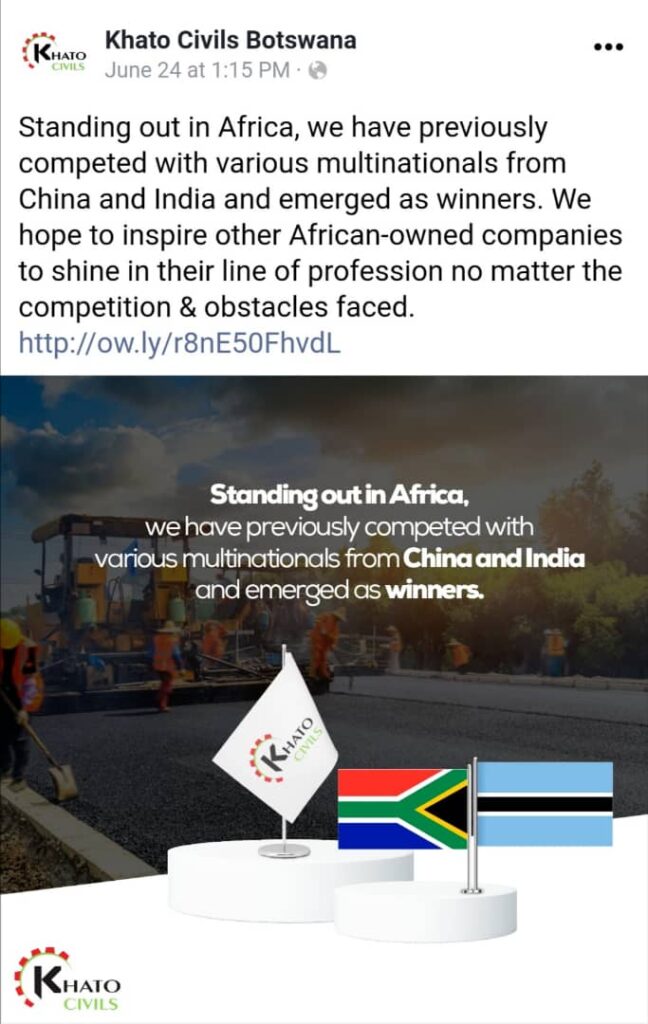
Authors: Pastor Ian Baloyi; Edison Brown Kalichelo; and Hamilton Mwandira
Edited By: Innocent Marshall
If you have any content that you would like to share with us for publishing, kindly send us an email: editor@shiretimes.com



